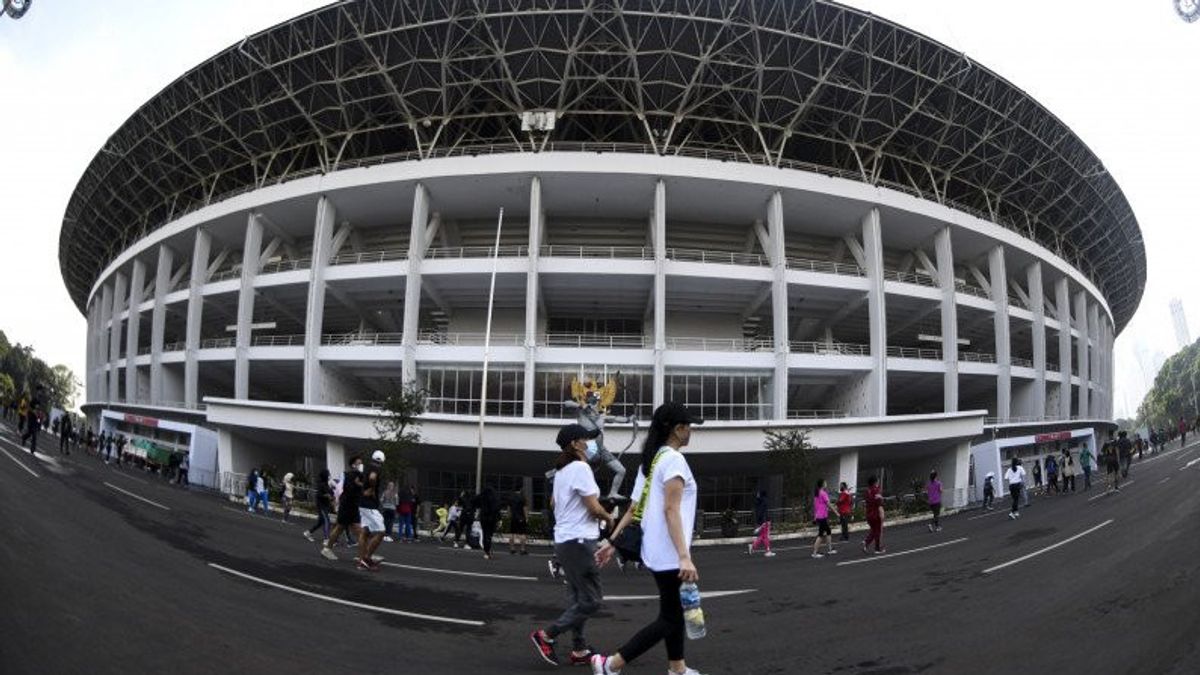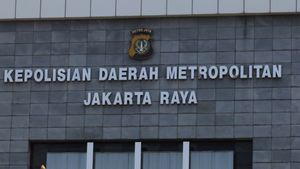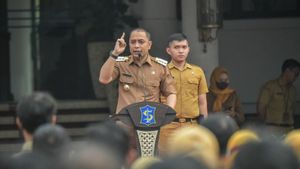
JAKARTA - The simulation results of a stadium security management course conducted by the National Police and Coventry University at the Bung Karno Main Stadium (GBK) revealed that managers had not carried out risk management optimally.
This was revealed by the Assistant for Operations (Asops) to the National Police Chief Inspector General Agung Imam Setya Effendy at the closing of the Stadium Security Management Course at Rupatama Police Headquarters, Jakarta, Wednesday, 1 February.
"Risk management has not been carried out optimally by the manager," Agung said as quoted by ANTARA.
Risk management is a structured approach or methodology in managing the uncertainty related to threats, a series of human activities including risk assessment, development of strategies to manage it, and risk mitigation by using the empowerment or management of resources.
Agung explained, in the stadium security management course the activities carried out included simulation exercises and theory in class (discussion).
In the simulation activity, he said, there were roles played by course participants in managing risk management at GBK.
The results of the discussion in the risk management simulation exercise at GBK concluded three things, one of which was that the risk management demonstrated by course participants at GBK had not been carried out optimally by GBK managers (participants appointed in the simulation).
"What I convey is a report on the implementation of the course," said Agung.
Another conclusion from the simulation results is that there are two adjacent vital objects, namely the Parliament Building, government offices, and shopping centers, so it is necessary to protect against threats to these vital objects.
The next conclusion, the GBK Stadium has quite a number of doors that can be accessed by pedestrians or vehicles.
"There are quite a lot of entrances to the stadium access, namely 94 small doors for people and 20 access roads to the Bung Karno Main Stadium," said Agung.
In addition to simulations, the course activities are filled with discussions about stadium facilities and equipment for football matches, as well as showing videos of rioting supporters at football matches in Scotland as teaching materials.
The course also includes discussions on how to hand over technical control, namely the exchange of technical control between the senior security officer (SSO) to the police.
"The results of the third discussion made a security plan referring to Perpol No. 10 of 2022 concerning securing the implementation of sports competitions," said Agung.
SEE ALSO:
After four days of discussion activities, course participants consisting of a team of trainers and operators reviewed the readiness of the Bekasi Police in securing the football match between Persija and Persikabo at Patriot Candrabhaga Stadium, Bekasi.
As a result of this review, the teaching team concluded that the security system implemented by the National Police for securing the Patriot Candrabhaga Stadium in Bekasi, in terms of problem placement and the number of personnel, was in a fairly good security standard.
"This conclusion will be discussed in the next material," said Agung.
The stadium security management course was held for nine days from 25 January to 2 February 2023. It was attended by 63 participants from the National Police, Ministry of PUPR, Ministry of Health, Ministry of Youth and Sports, PSSI, PT Liga Baru Indonesia (LIB), and related stakeholders in the maintenance of football.
This course activity presents a trainer from Coventry University who teaches stadium security management according to FIFA standards.
The English, Chinese, Japanese, Arabic, and French versions are automatically generated by the AI. So there may still be inaccuracies in translating, please always see Indonesian as our main language. (system supported by DigitalSiber.id)













